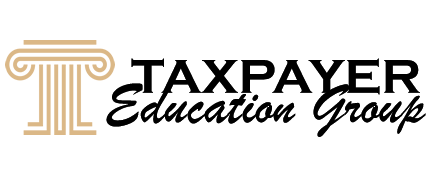
Don’t see the information you are looking for?
IRS AND STATE TAXES
What happens if I owe tax money to the IRS but can't pay?
You should always do your due diligence to be compliant with the IRS, pay current estimated taxes if necessary, make sure your employer is withholding appropriate amounts on your W2, always claim the right amount of dependents, etc.
In some cases life gets on the way and you can find yourself in a situation of tax debt without the means to pay for it.
The IRS always has a solution or a way to help those that have the intention to pay but honestly are not able to.
These are some examples:
– Instalment agreement
– Partial payment installment agreement
– “Currently Not Collectible” status.
– Offer in Compromise.
IMPORTANT: All these resolutions and more are available but not for every case, you have to be a candidate. There are many factors that will determine if you are a candidate for a given resolution.
DO NOT Pay high amounts of money to companies that offer to “try” to get you the resolution you want, you may not qualify for it and you will end up losing your money.
If you don’t know what to do CONTACT US, we will do a free evaluation on your case and tell you what to do, in many cases you can solve these problems without paying for help.
What if I don't have anough money to pay for professional help?
![]() Taxpayer Education Group will inform you and guide you as much as possible at no cost. In some cases, when we have enough donations or volunteers we can provide those professional services at no cost to you.
Taxpayer Education Group will inform you and guide you as much as possible at no cost. In some cases, when we have enough donations or volunteers we can provide those professional services at no cost to you.
If that is your case, CONTACT US, we will do an evaluation on your case and tell you what to do, in some cases you can solve these problems without paying for help.
How quickly will I get my refund?
![]() The IRS issues most refunds in less than 21 calendar days. However, if you filed on paper and are expecting a refund, it could take six months or more to process your return. It is also taking the IRS more than 21 days to issue refunds for some tax returns that require review including incorrect Recovery Rebate Credit amounts, or that used 2019 income to figure the Earned Income Tax Credit (EITC) and Additional Child Tax Credit (ACTC).
The IRS issues most refunds in less than 21 calendar days. However, if you filed on paper and are expecting a refund, it could take six months or more to process your return. It is also taking the IRS more than 21 days to issue refunds for some tax returns that require review including incorrect Recovery Rebate Credit amounts, or that used 2019 income to figure the Earned Income Tax Credit (EITC) and Additional Child Tax Credit (ACTC).
I have not received my tax refund after 21 days. Why?
 Some tax returns take longer to process than others for many reasons, including when a return:
Some tax returns take longer to process than others for many reasons, including when a return:
- Is filed on paper
- Includes errors, such as incorrect Recovery Rebate Credit
- Is incomplete
- Needs further review in general
- Is affected by identity theft or fraud
- Includes a claim filed for an Earned Income Tax Credit or an Additional Child Tax Credit. See Q&A below.
The IRS will contact you by mail when (or if) they need more information to process your return.
You can check the status of your tax refund online by visiting; https://sa.www4.irs.gov/irfof/lang/en/irfofgetstatus.jsp
Calling the IRS will help me get my return faster?
![]() IRS representatives can research the status of your return only if:
IRS representatives can research the status of your return only if:
- It’s been more than 21 days since you received your e-file acceptance notification,
- It’s been more than 6 months since you mailed your paper return.
You can check the status of your tax refund at: https://sa.www4.irs.gov/irfof/lang/en/irfofgetstatus.jsp
What does the status on my tax return mean?
![]() RECEIVED – The IRS has received your tax return.
RECEIVED – The IRS has received your tax return.
PROCESSING – The IRS is looking at your tax return.
APPROVED – The IRS approved your refund. They are are preparing to send your refund to your bank or directly to you in the mail.
You can check the status of your tax return online at: https://sa.www4.irs.gov/irfof/lang/en/irfofgetstatus.jsp
What should I do if I receive a check or deposit from the IRS that is not mine?
![]() Please don’t cash the refund check or spend the direct deposit refund. Send the refund back to the IRS.
Please don’t cash the refund check or spend the direct deposit refund. Send the refund back to the IRS.
They will eventually discover this mistake and they will ask for that money back, it could cause interest, penalties and other actions.
Is there an age limit to claim my child as a dependent?
![]()
To claim your child as your dependent, your child must meet either the qualifying child test or the qualifying relative test:
- To meet the qualifying child test, your child must be younger than you and either younger than 19 years old or be a “student” younger than 24 years old as of the end of the calendar year.
- There’s no age limit if your child is “permanently and totally disabled” or meets the qualifying relative test.
I lost my tax refund check. What do I do?
![]()
If you lost your refund check, you should initiate a refund trace:
- Call the IRS at 800-829-1954 (toll-free) and either use the automated system or speak with an agent.
- However, if you filed a married filing jointly return, you can’t initiate a trace using the automated systems. Download and complete the Form 3911, Taxpayer Statement Regarding RefundPDF or the IRS can send you a Form 3911 to get the replacement process started.
Your claim for a missing refund is processed one of two ways:
- If the check wasn’t cashed, you’ll receive a replacement check once the original check is canceled.
- If the refund check was cashed, the Bureau of the Fiscal Service (BFS) will provide you with a claim package that includes a copy of the cashed check. Follow the instructions for completing the claim package. BFS will review your claim and the signature on the canceled check before determining whether they can issue you a replacement check. The BFS review can take up to six weeks to complete.
What is the difference between a W2 and a 1099-MISC or 1099-NEC?
![]()
Although these forms are called information returns, they serve different functions.
Employers use Form W-2, Wage and Tax Statement to:
- Report wages, tips, and other compensation paid to an employee.
- Report the employee’s income and social security taxes withheld and other information.
Employers furnish the Form W-2 to the employee and the Social Security Administration. The Social Security Administration shares the information with the Internal Revenue Service.
Payers use Form 1099-MISC, Miscellaneous Information or Form 1099-NEC, Nonemployee Compensation to:
- Report payments made of at least $600 in the course of a trade or business to a person who’s not an employee for services (Form 1099-NEC).
- Report payments of $10 or more made in the course of a trade or business in gross royalties or payments of $600 or more made in the course of a trade or business in rents or for other specified purposes (Form 1099-MISC).
- Report payment information to the IRS and the person or business that received the payment.
To make it simple:
- If you are receiving a W2 then most likely that company is withholding enough taxes so you won’t owe any money at the end of the year.
- If you are receiving a 1099-MISC 0r 1099-NEC then you are some kind of subcontractor, no taxes are withheld, you will owe taxes on that income.


